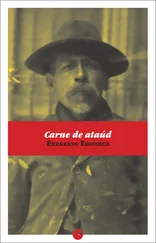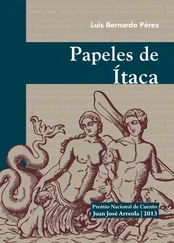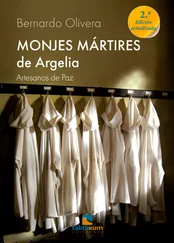Bernardo Atxaga - Obabakoak
Здесь есть возможность читать онлайн «Bernardo Atxaga - Obabakoak» весь текст электронной книги совершенно бесплатно (целиком полную версию без сокращений). В некоторых случаях можно слушать аудио, скачать через торрент в формате fb2 и присутствует краткое содержание. Год выпуска: 2010, Издательство: Graywolf Press, Жанр: Современная проза, на английском языке. Описание произведения, (предисловие) а так же отзывы посетителей доступны на портале библиотеки ЛибКат.
- Название:Obabakoak
- Автор:
- Издательство:Graywolf Press
- Жанр:
- Год:2010
- ISBN:нет данных
- Рейтинг книги:3 / 5. Голосов: 1
-
Избранное:Добавить в избранное
- Отзывы:
-
Ваша оценка:
- 60
- 1
- 2
- 3
- 4
- 5
Obabakoak: краткое содержание, описание и аннотация
Предлагаем к чтению аннотацию, описание, краткое содержание или предисловие (зависит от того, что написал сам автор книги «Obabakoak»). Если вы не нашли необходимую информацию о книге — напишите в комментариях, мы постараемся отыскать её.
Obabakoak
The Observer
Obabakoak — читать онлайн бесплатно полную книгу (весь текст) целиком
Ниже представлен текст книги, разбитый по страницам. Система сохранения места последней прочитанной страницы, позволяет с удобством читать онлайн бесплатно книгу «Obabakoak», без необходимости каждый раз заново искать на чём Вы остановились. Поставьте закладку, и сможете в любой момент перейти на страницу, на которой закончили чтение.
Интервал:
Закладка:
I often deny it to myself but, if I’m being honest, it’s true, I am usually waiting for the train, and in the end I do what I do because of the train, that’s why I don’t sleep and all that.
The train passes through the city at twenty-five to four. Up to that moment I’m usually on the alert, listening to the noises of the night, the voices and sounds that have grown familiar through repetition. So, for example, the last bus stops on the corner shortly after three and its one passenger gets off, a man, it seems, who loves to whistle, and sometimes he whistles the same tune all week. Then, at about three fifteen, the street sweepers arrive. At half past three it’s the turn of the man I call Fangio, because he usually speeds by about then and the noise his car engine makes is first like a roar and then later, when he’s far off, like the moan of an animal that’s wounded or in pain. Then, at last, after a few more minutes, the train arrives.
The iron bridge warns me of its arrival. Up to that moment I can’t be completely sure, because you can be mistaken and confuse the train with the sound of the wind or with something else. But the iron bridge never lies, it acts like a loudspeaker, and, besides, the train makes a loud hammering noise when it crosses it.
Mostly it arrives on time, at twenty-five to four. But there are days when it’s late and then I can’t help but get nervous. I start counting every second, I listen as hard as I can, and even get up to look out of the window. One day it didn’t turn up until eight in the morning and I was in tears and everything because I felt sure there’d been an accident. Later I learned that the delay had been caused by nothing more serious than a landslide, or so I read in the paper.
The train usually has about twenty carriages and its destination is Hamburg. I don’t know if it always carries the same cargo but the day I traveled on it, it was carrying horses. I was told they were bound for America and that was why they were unloading them at the port. What will have become of those horses? I don’t know and the truth is I’d rather not. It might be that after that long journey all that awaited them was the butcher.
The train reduces speed when it crosses the bridge and that’s the most important moment of the night. That’s when I light the cigarette I usually keep on the bedside table; and that’s when I start imagining.
First I imagine the two drivers at the engine. I imagine them both silent, each one immersed in his own thoughts. At first, when they started working together, I’m sure they had loads of things to tell each other, but once that first stage was over, after they’d talked about their family and their friends, they’d find it difficult to come up with new topics of conversation. Of course they could talk about football and stupid things like that, but I don’t think so. People do talk about those things but not at four o’clock in the morning, not when they’ve been working for five hours.
I imagine, then, that they’re both silent, watching the lights on the control panel or looking ahead at the rails. Especially looking at the rails. Or at least that’s what I did that day. The horses in the wagons kept neighing and neighing, they were frightened and the truth is so was I until I got used to the speed, because it seemed to me that at any moment the rails were going to fly apart. But when I got over my fear I kept looking straight ahead, because the same thing happened to me as when I go to the sea, I was sort of hypnotized, I couldn’t take my eyes off those rails continually coming together and moving apart, because that’s what happens when you travel in a train at a hundred miles an hour, that’s what the railway lines do.
And the rails aren’t the only frightening thing when you travel in the engine of a train, because you suddenly realize that another train could emerge out of the darkness, coming from the opposite direction, I mean, and crash into you. But engine drivers aren’t like me. They’re not afraid. Perhaps they were on their first journey, but not now, now they’re used to it, and I imagine them feeling bored, looking indifferently out at the villages that appear along the way.
Each of them immersed in his own thoughts, that’s how I imagine them. One of them is married and has two children and thinks of them whenever he sees the lighted windows of a house because he assumes there must be some child in the house who’s ill or who won’t go to sleep. And then he feels like phoning his wife to find out how his children are, because, of course, they too could be ill or be having trouble sleeping, and he probably will do that, phone home I mean, as soon as he gets to Hamburg, and even if he doesn’t it won’t matter, at least he thought of it.
And I stop thinking about the first driver and I start imagining what the second one, Sebastian, is doing, what’s going on inside his head. And then I imagine that he’s thinking of me, that he’d like to come to this room where I lie smoking my cigarette, and that it grieves him not to have his wish.
But in imagining these things, I’m only fooling myself. Sebastian’s forgotten about me. If he hadn’t he’d blow the train whistle three times, two short blasts followed by one long one, as soon as he crossed the iron bridge, the way he used to do night after night for the forty-four days that followed our journey together with the horses.
If I could, I’d go out for a stroll every night
II. Marie’s statement
IF I COULD, I’d go out for a stroll every night because the night is so lovely, just like the last hour of evening, which is lovely too, and that’s what the four of us used to do, Grandfather, Toby, Kent, and me, we’d finish our work just before the sun went down and set off for the valley to go for a walk. Grandfather would ride Kent and I’d carry the miniature white walking stick they give all the children at the village fiesta every year and Toby would be running and leaping about, and, because he’s pretty stupid, he’d keep barking at the swallows, but the swallows would make fun of him by flying right past his nose at full pelt, screaming as they went, because, as you know, when evening comes the swallows do scream when they’re out hunting for mosquitoes. They catch the mosquitoes and store them in their wings and among their feathers and they work really hard, especially in the spring, for their young, I mean, because they usually have families to keep, and whenever it was that time of year, Grandfather used to help the pair that lived in our stable, he’d open the babies’ beaks and feed them breadcrumbs soaked in milk because that particular couple had a lot of mouths to feed, five babies in all, quite a responsibility, anyway that’s what they always say in my house, that life’s expensive and that our farm, for example, will never make us rich, and that I won’t be able to go on to college, even though I’m an only child, but I don’t really mind that much and anyway I’m only eleven and it’s years yet before I’d go.
So that’s what we’d do, leave the farm when the swallows came out and set off very slowly toward the valley and grandfather would take with him the tape measure my mother uses for sewing because my mother’s a seamstress and from time to time makes dresses and once she made a bright red one for the village schoolmistress and I really, really liked it but that idiot Vincent didn’t, Vincent made fun of the dress and said the teacher had bought it because she was in love and that she looked like a tomato in glasses, and he even made a drawing on the blackboard and then the teacher punished the whole class.
But, as I was saying, Grandfather would take this tape measure with him and use it to measure the plants to see how they were growing and one day we’d measure the alfalfa, another day we’d measure the clover, and, because Grandfather’s very old, I was the one who would kneel down and put the zero on the tape measure right on the ground and then Grandfather would make his calculations and say: “No need to worry about this plant, Marie. It’s grown two and three-quarter inches since yesterday. That means the world’s still alive.”
Читать дальшеИнтервал:
Закладка:
Похожие книги на «Obabakoak»
Представляем Вашему вниманию похожие книги на «Obabakoak» списком для выбора. Мы отобрали схожую по названию и смыслу литературу в надежде предоставить читателям больше вариантов отыскать новые, интересные, ещё непрочитанные произведения.
Обсуждение, отзывы о книге «Obabakoak» и просто собственные мнения читателей. Оставьте ваши комментарии, напишите, что Вы думаете о произведении, его смысле или главных героях. Укажите что конкретно понравилось, а что нет, и почему Вы так считаете.











